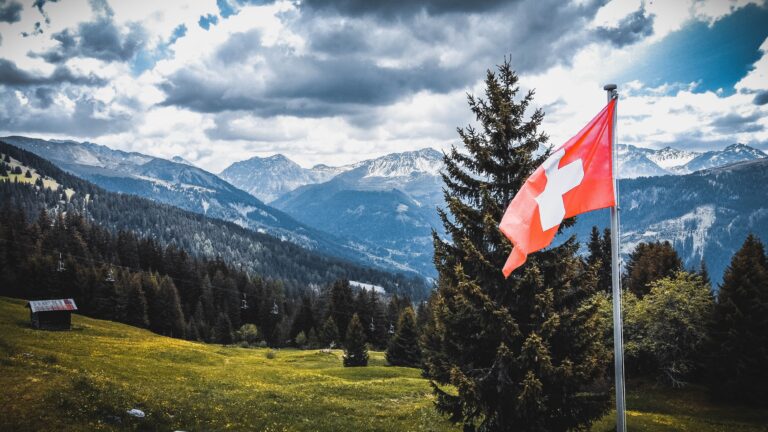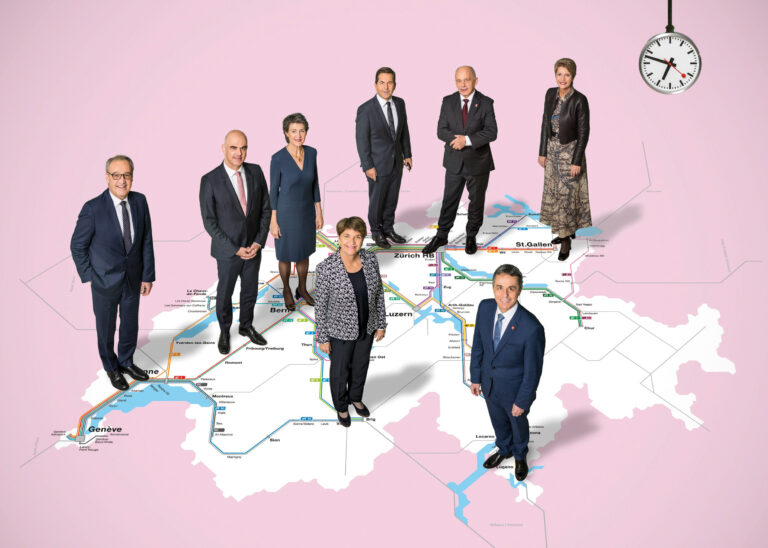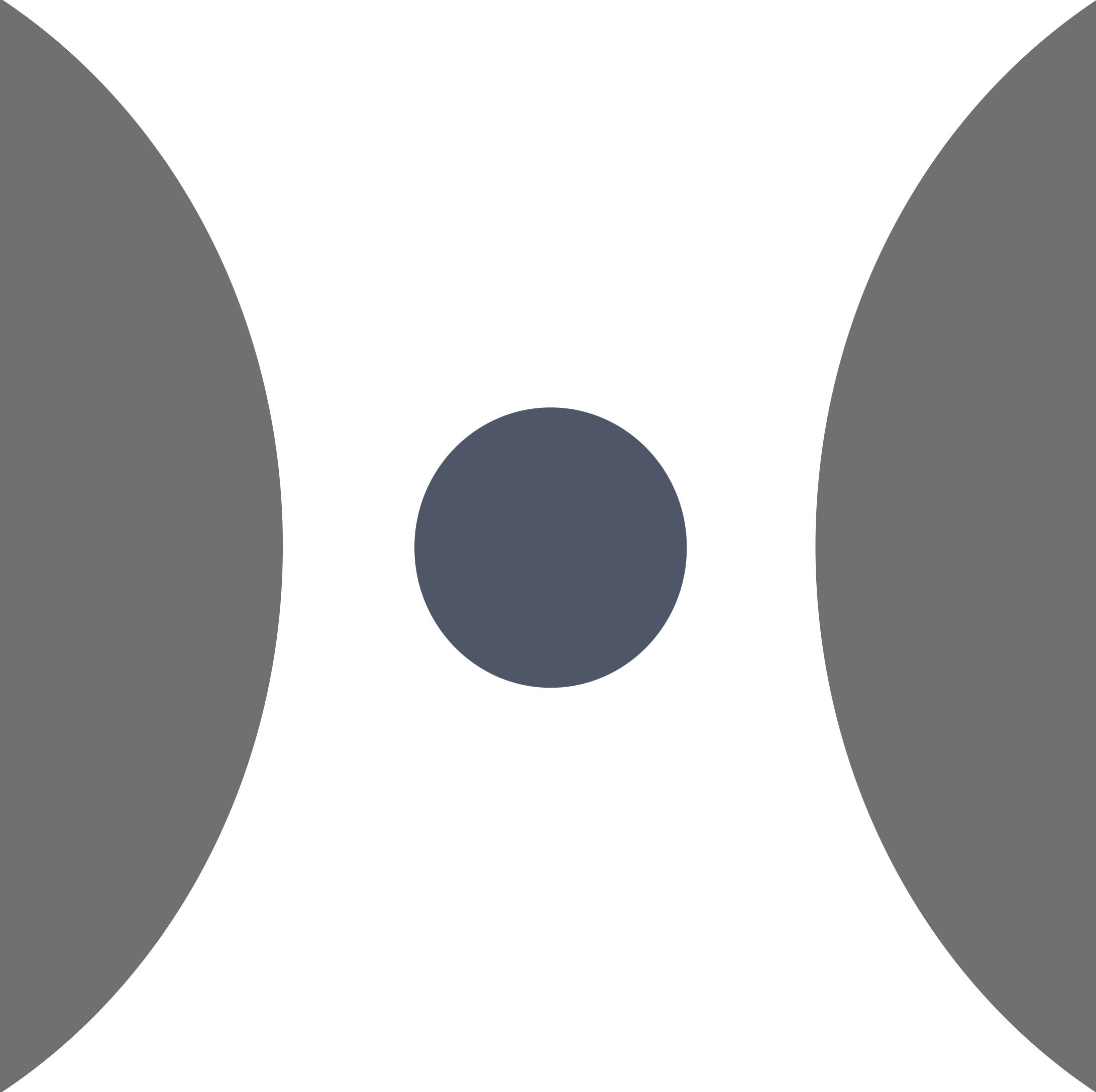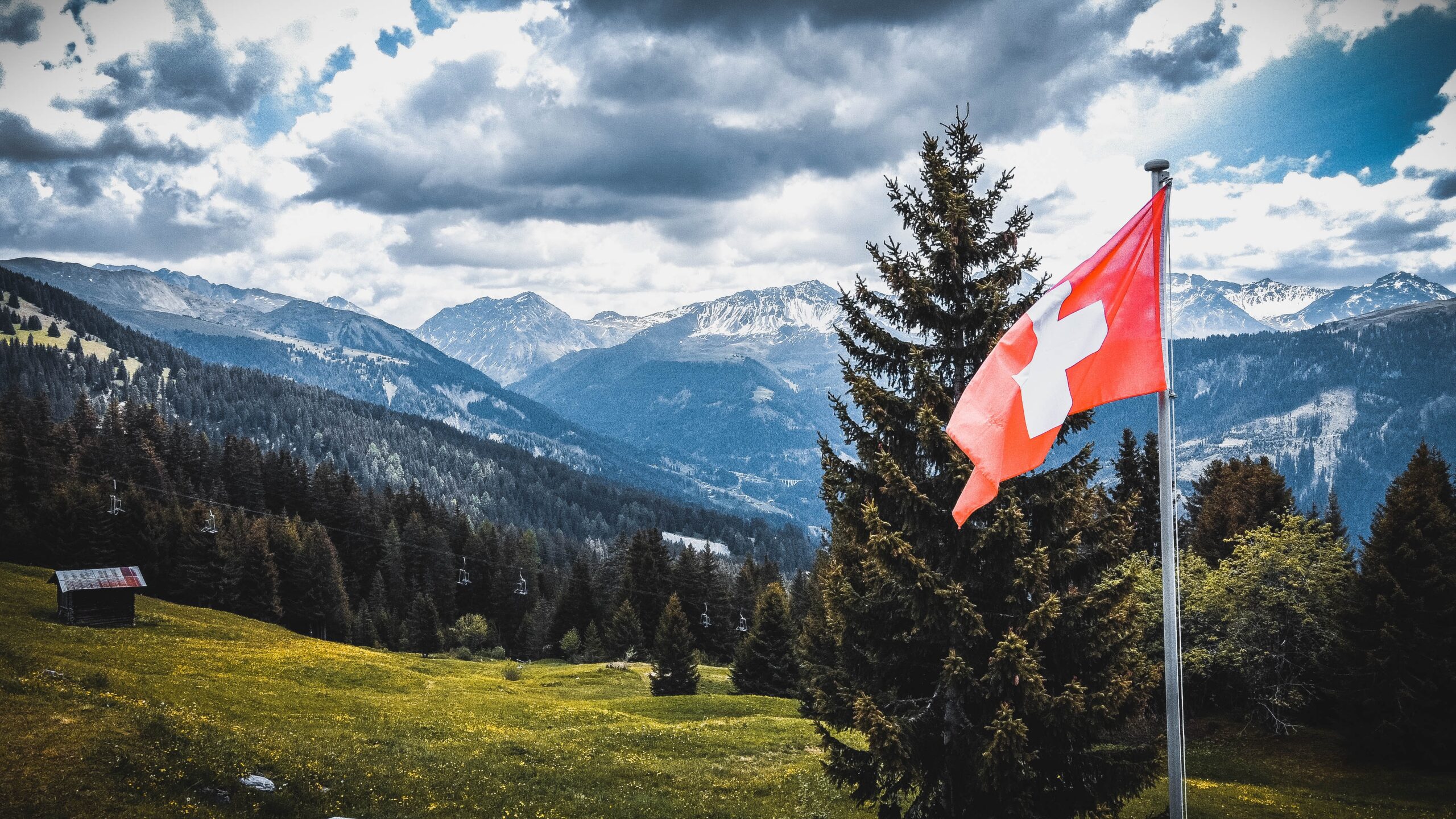Call from Left and Green Supporters: Yes to the Neutrality Initiative!
Date: January 10, 2024
To sign, please enter your information here: https://forms.gle/WEBf7toCUtmof1hc8
The initiative “Preservation of Swiss Neutrality,” launched in 2022, is being denounced in many media outlets and by some members of the Left and Green parties as a right-wing or populist attempt at isolationism. We disagree: as supporters of Left and Green causes, we welcome and support the Neutrality Initiative! The initiative is not “right-wing” but was developed by a bipartisan committee aiming to redirect Swiss foreign policy away from a pro-NATO stance towards an international and open-minded neutrality. As supporters of the Left and Green causes, we are convinced that this divisive thinking leads to a dead-end. We advocate for a substantive debate.
What the initiative is about
Switzerland’s neutrality is over 200 years old, and its legal premises have been clearly defined since 1907 in the Hague Conventions. These provisions are a proper, timeless, and international legal basis for our foreign policy. Switzerland does not participate in the wars of other states, complemented by strict legislation on war material exports. In the new multipolar world order, we need a neutrality that ensures security and aligns itself with world peace. Although neutrality is mentioned in our constitution, it is not defined there. This initiative addresses that gap and provides a clear direction for our foreign policy. It signals to foreign nations what to expect from Switzerland. It is proposed that the Federal Constitution is supplemented with the following article:
Article 54a Swiss Neutrality
- Switzerland is neutral. Its neutrality is perpetual and armed.
- Switzerland does not join any military or defense alliance. An exception is made for cooperation with such alliances in the event of a direct military attack on Switzerland or in the case of actions preparing for such an attack.
- Switzerland does not participate in military conflicts between third states and does not take non-military coercive measures against belligerent states. Exceptions are Switzerland’s obligations to the United Nations (UN) and measures to prevent the circumvention of non-military coercive measures by other states.
- Switzerland uses its perpetual neutrality for the prevention and resolution of conflicts and is available as a mediator.
This constitutional text does not encompass the entirety of Swiss neutrality but serves as a guideline for an active understanding of neutrality oriented toward world peace.
As members of Left and Green causes, we support the initiative for the following reasons:
1) An impartial neutrality ensures an internationally oriented Switzerland
We advocate for an open and multicultural Switzerland. Paragraph 4 of the initiative calls for Switzerland to actively contribute to preventing and mediating conflicts in the future. Our country will not take sides in international conflicts but will unequivocally offer itself as a platform for negotiations to any state of the international community. As a meeting place for diverse cultures and worldviews, Switzerland can promote peace in the world.
Our neutrality policy must also be credible towards countries of the Global South and those without Western-oriented democratic systems because forms of government, order, and values depend, among others, on technological and economic development. In its peace efforts, Switzerland does not align with the positions of one side or the other but expresses understanding and willingness to dialogue with all parties. Only in this way can Switzerland gain and maintain trust from all sides. Switzerland is not part of a power bloc but will integrate into the global community. On this basis, the International Red Cross, one of Switzerland’s most renowned humanitarian institutions, can continue to provide its valuable services and assist those affected by conflicts on both sides.
2) Switzerland’s active neutrality is a European peace project
As pacifist members of the Left and Green parties, we advocate for peace in Europe. In 1815, the Swiss government pledged to “recognize and guarantee perpetual neutrality, which the common European state interest requires in favor of the Confederation.” After 200 years, we aim to renew this commitment to Europe.
As a buffer state, Switzerland played a crucial role in maintaining the balance of power in Europe for 100 years. We did not lend our country to the Austrians against the French or vice versa. Although neutrality could not safeguard peace internationally during the two World Wars, it at least preserved peace within our borders.
During the Cold War, Switzerland significantly contributed to the success of the Conference on Security and Cooperation in Europe (CSCE), fostering peace and understanding. We take pride in this accomplishment, and we believe Switzerland should continue to contribute to peace in Europe through an active but prudent policy of neutrality.
With its expertise in neutrality, Switzerland can also assist states in similar geopolitical situations: forming a network with other neutral and nonaligned states to advocate for de-escalation between conflicting nations.
3) The return to integral neutrality makes Switzerland globally credible
The most significant change in the current practice of neutrality is introduced in paragraph 3 of the initiative: Switzerland does not participate in non-military coercive measures against other states. This is crucial because major powers conduct their wars not only militarily but also economically. Often, sanctions are imposed that are neither in compliance with international law nor human standards. These sanctions affect targeted populations, with poor and vulnerable people (women, children, and the elderly) suffering the most. Economic sanctions imposed by a powerful country or bloc of countries are arbitrary. Switzerland rejects such acts of violence but it will address and criticize threats to peace, violations of international law, and human rights at the UN—committed by whatever party.
4) Integral neutrality means solidarity with the poorest people in the world
In wars, the middle class and those affected by poverty bleed and suffer the most, while arms companies and their shareholders profit massively. This holds true for the conflict in Ukraine, where the Ukrainian and Russian people bleed each other dry, while the military-industrial complex of the warring and war-promoting states continues to grow. With each escalation, there is an increased demand for deadly weaponry leading to large profits of already wealthy people. In short, wars bring death to many and profits to big capital. This is an ironclad rule of war.
Sanctions prolong the war. They also rarely lead to “regime change.” Sanctions do not address and alleviate economic and social imbalances between the West and the poorer rest of the world; instead, they exacerbate these disparities. Therefore, Switzerland fundamentally refrains from imposing sanctions, except when mandated by the UN Security Council. Showing solidarity only with states and groups of people who have a comparable standard of living and share Western values is unacceptable: Switzerland practices impartial solidarity and extends its support to all states facing hardship. In practical terms, this means extending solidarity to the poorer part of the world.
5) The decision to refrain from joining NATO is our most significant contribution to world peace
NATO, once a defense alliance, has evolved into an aggressive organization that extends its operations far beyond the North Atlantic and Europe with “Out of Area” interventions. NATO serves to maintain and expand Western hegemony. Unlawful NATO interventions have led to the collapse of three states Iraq, Afghanistan, and Libya. While the United States, on the other side of the Atlantic, primarily focuses on preserving its imperial position of power, Europe has to cope with massive refugee flows because all three countries now face dire conditions.
This trend continues as some of its largest members even dream of an “Economic NATO defending our standard of living.”[1] However, with one billion people in the NATO population exploiting global resources without limits, they have been depleting the equivalent of three to five planets annually, contributing to climate change and global biodiversity decline. These global issues can only be addressed through multilateral efforts and a socially and ecologically sustainable economy. Therefore, let’s put an end to wars and sanctions. Economic equity is the most crucial contribution to global security policy!
6) Armed neutrality is a pacifist approach to international politics.
Neutrality has a future: Peace becomes more secure when more countries remain independent and neutral instead of aligning themselves with one of the major blocs. As an armed nation, Switzerland defends itself if attacked but will not participate in foreign wars, even for the collective defense of other countries. In doing so, Switzerland adheres to a more consistent pacifism than required by the UN Charter. Article 51 grants all members the “inherent right of individual or collective self-defense.” However, the concept of “collective self-defense,” originally intended as an exception, has become the norm. Since World War II, practically every aggressive war has been justified as “collective self-defense”: the Soviet interventions in Hungary (1956) and Czechoslovakia (1968), the U.S. interventions in Vietnam (1964), Afghanistan (2001), Iraq (2003), China’s intervention in Vietnam (1979), and NATO interventions in Serbia (1999) and Libya (2011).
Switzerland rejects collective self-defense and pledges not to participate in any wars. It remains pacifist, regardless of any foreign economic or moral pressure. Because the true causes for wars come to light only decades after they are fought, Switzerland, as a matter of principle, refrains from forming military alliances. It neither engages in war propaganda against other countries nor demonizes them—this is our hope. Switzerland should not become a country of self-righteous and autocratic war participants. Rejecting the mindset of blocs and advocating for substantive debate, we say: Yes to the Neutrality Initiative!
Authors of the call (and contact)
Dr. Pascal Lottaz, Associate Professor, Kyoto ([email protected]).
Verena Tobler Linder, Ethnologin und Soziologin, Zürich ([email protected]).
Prof. em. Wolf Linder, Politologe, Bern ([email protected]).
First Signatories
Araújo, Stefano, Membre du Comité Central du PC, Geneve.
Ay, Massimiliano, Membro Gran Consiglio del Canton Ticino, Bellinzona.
Barenco, Sergio, Ex-Membro del Municipio, Arbedo.
Belser, Eduard, Ehem. Ständerat und Ehem. Regierungsrat, Basel-Land.
Bernasconi, Guido, Ex-Deputato al Gran Consiglio del Canton Ticino, Sonvico.
Beroggi, Filippo, Koordinator SISA Gewerkschaft, Bissone.
Camozzi, Ismael, Koordinator SISA Gewerkschaft.
Cappelletti, Edoardo, Conseil Communal, Lugano.
Casella, Zeno, Conseil Communal, Capriasca.
Cereghetti, Bruno, Ex-Deputato al Gran Consiglio del Canton Ticino e del Municipio di Locarno.
Ferrari, Lea (Agronoma Msc), Deputata del Gran Consiglio del Canton Ticino, Serravalle.
Ferrazzini, Marco, Ex-Vice-Maire et Grand Conseiller, Chiasso.
Forni, Angelica, Consigliera Comunale, Losone.
Frei, Luca, Koordinator der KJ, Lugano.
Galli, Giovanni, Psicologo e Psicopedagogista, Minusio.
Genitsch-Hofer, Franziska, Partei der Arbeit (PDA), Basel.
Gerster, Willi (Dr. rer. pol.) Ehem. SP-Grossrat, Basel-Stadt.
Gräub, Ernst, Ehem. Gewerkschaftssekretär, Basel.
Hanke Güttinger, Ariet (Dr. phil.), Historikerin, Dussnang.
Hebling, Francesco, Mitglied des Zentralkomitees KJ, Tessin.
Heise, Herbert, Psychiater und Chefarzt im Ruhestand, Bern.
Hofer, Stefan (Rechtsanwalt im Ruhestand), Partei der Arbeit (PDA), Basel.
Joos, Heidi, Coaching-Fachfrau & ehemaliges Mitglied Legislative Stadt und Kanton, Luzern.
Iembo, Samuel, Mitglied des Zentralkomitees der KP, Bellinzona.
Leuenberger, Peter, Ehemaliger Sekretär der Anti-Apartheid Bewegung der Schweiz, Köniz.
Linder, Wolf (Prof. em.), Politologe, Bern.
Lottaz, Pascal (Dr. phil.), Associate Professor Universität Kyoto & Mitglied SP International, Japan.
Lucchini, Alessandro, Economista & Consigliere Comunale, Bellinzona.
Malyguine, Nil, Membro del Comitato Centrale del PC, Massagno.
Marconi, Martino, Consigliere Comunale, Morbio Inferiore.
Masera Arigoni, Elena, Magliaso.
Mattmann-Allamand, Peter (Dr. med.), Arzt & Ehemaliger POCH- und Grünen-Politiker, Kriens.
Müller, Christian (Dr. phil.), Publizist, Monteggio.
Müller, Hans-Peter (Prof. em.), Ethnologe, Uitikon.
Müller, Geri, Ehem. Nationalrat und Präsident der Gesellschaft Schweiz Palästina, Baden.
Paltenghi, Niki, Graphiste ECAL & Membro del Comitato Centrale del PC.
Parzani, Siria, Mitglied des Zentralkomitees der KJ, Porza.
Pugno Ghirlanda , Daniela, Ex-Deputata al Gran Consiglio del Canton Ticino, Minusio.
Reins, Ivo (Prof. em.), Juriste et Historien, Genève.
Roca, René (Dr. phil.), Historiker, Oberrohrdorf.
Scheben, Helmut (Dr. phil.), Journalist und langjähriger Redaktor der SF Tagesschau, Zürich.
Schmid, Peter (Dr. phil.), Alt-Nationalrat & Präsident Grüne Partei Schweiz von 1987 bis 1990.
Schneider, Beat (Prof. em.), Kultur- und Designgeschichte, Bern.
Schumacher, Franz, Ehem. SP- Stadt- und Kantonsrat, Zürich.
Soiland, Tove (Dr. phil.), Historikerin und feministische Theoretikerin, Zürich.
Soyyigitoglu, Niyazi, Sozialpädagoge, Zürich.
Speranza, Amos, Membre du Comité Central du PC, Bellinzona .
Tobler Linder, Verena, Ethnologin und Soziologin, Zürich.
Togni, Alberto, Consigliere Comunale , Gordola.
Villa, Malena, Mitglied des Zentralkomitees der KJ, Claro.
Zahno, Gallus, Berufsschullehrer & Gemeinderat Staufen, Staufen.
Co-Signing this Call
To co-sign this call please use the following form: https://forms.gle/WEBf7toCUtmof1hc8
[1] Sandrine Dixson-Declèv et all., Earth for All: Asurvival guide for humanity, (Gabriola: New Society Publishers, 2022).
Photo by Janosch Diggelmann on Unsplash
Articles and Media about this topic

In Support of Switzerland’s Neutrality Initiative
A group of engaged citizens in Switzerland has started the process for a political initiative with the goal of writing a definition of the country’s signature foreign policy into its constitution. If the initiative is signed by 100’000 eligible voters by May 2024, this will lead to a mandatory referendum in a few years time….

“Cooperation” before “Neutrality”: Switzerland’s New Security Doctrine
Although Switzerland’s Federal Council rejected its Foreign Minister’s idea for “cooperative neutrality”, the new security doctrine it recently approved reverses parts of the alpine nation’s traditional neutrality concept. Preparations for collective defense with NATO and EU-states are underway.

